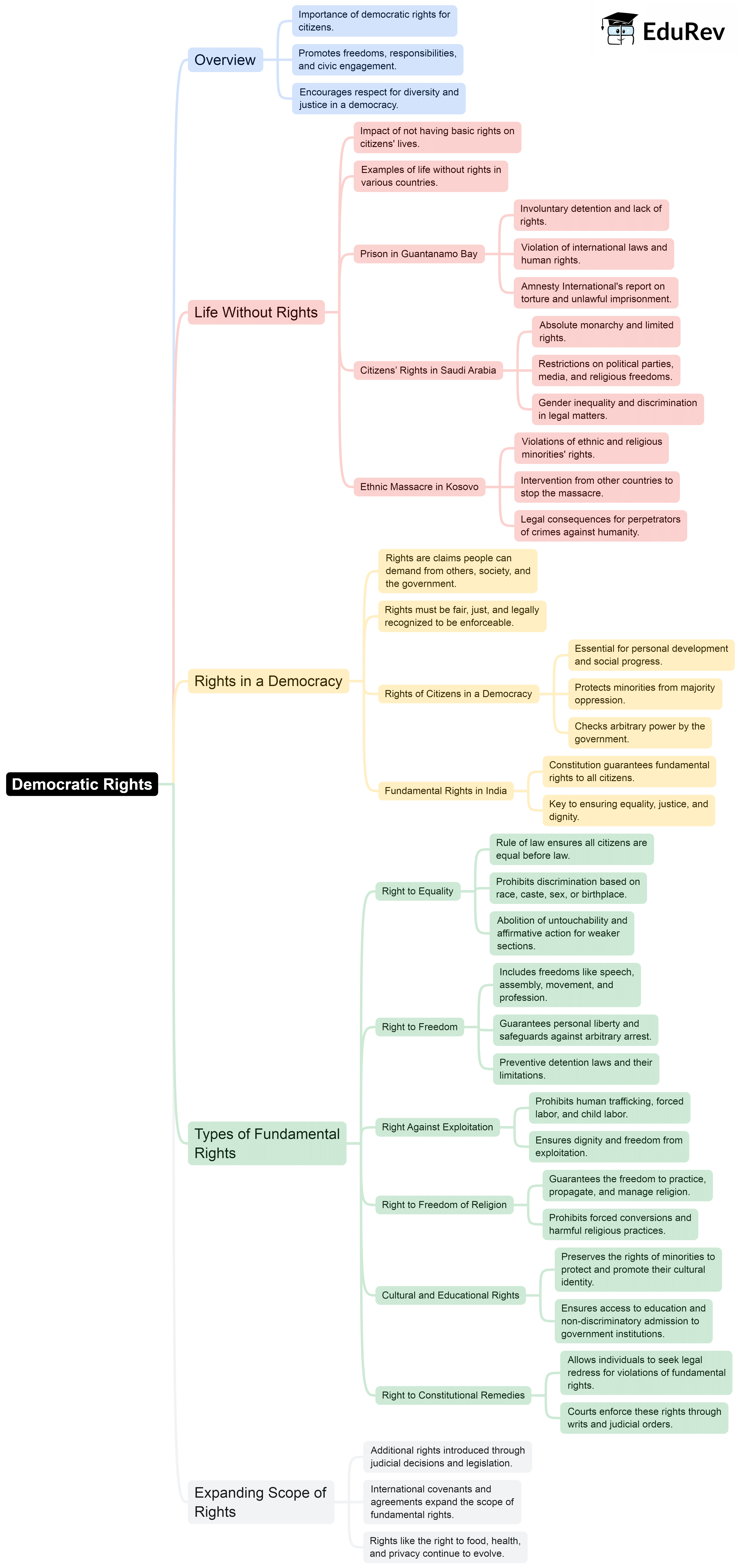Class 9 Exam > Class 9 Notes > Social Studies (SST) Class 9 > Mind Map: Democratic Rights
Mind Map: Democratic Rights | Social Studies (SST) Class 9 PDF Download

The document Mind Map: Democratic Rights | Social Studies (SST) Class 9 is a part of the Class 9 Course Social Studies (SST) Class 9.
All you need of Class 9 at this link: Class 9
|
55 videos|525 docs|78 tests
|
FAQs on Mind Map: Democratic Rights - Social Studies (SST) Class 9
| 1. What are democratic rights? |  |
Ans. Democratic rights are the rights and freedoms that are guaranteed to individuals in a democracy. These rights include the right to vote, the right to free speech, the right to assemble, and the right to participate in government. They are essential for ensuring that citizens can engage in the democratic process and hold their government accountable.
| 2. How do democratic rights differ from human rights? |  |
Ans. While democratic rights are specific to the functioning of a democracy and the participation of citizens in governance, human rights are broader and encompass the fundamental rights and freedoms that all individuals possess simply by being human. Human rights include the right to life, freedom from torture, and the right to privacy, among others. Democratic rights can be considered a subset of human rights.
| 3. Why are democratic rights important for society? |  |
Ans. Democratic rights are important because they empower individuals to participate in their government and influence decision-making. They promote equality, protect minority opinions, ensure accountability, and help to prevent abuse of power. A society that upholds democratic rights is more likely to be stable, just, and responsive to the needs of its citizens.
| 4. What are some examples of democratic rights in practice? |  |
Ans. Examples of democratic rights in practice include the right to vote in elections, the freedom to express opinions through speech and writing, the right to assemble peacefully in protests or rallies, and the right to a fair trial. These rights allow citizens to advocate for themselves and their communities, ensuring that diverse perspectives are heard in the political process.
| 5. How can individuals protect their democratic rights? |  |
Ans. Individuals can protect their democratic rights by staying informed about their rights and responsibilities, participating in elections, advocating for policy changes, joining civic organizations, and holding public officials accountable. Engaging in public discourse, voting, and utilizing legal avenues to challenge violations of rights are also crucial for safeguarding democracy.
Related Searches
















